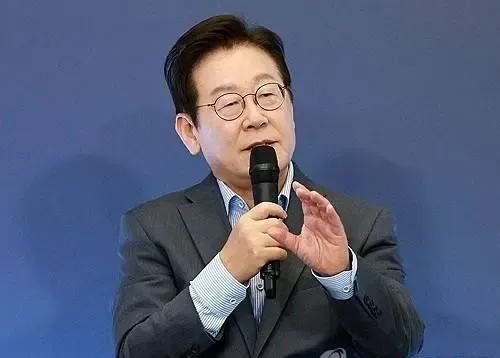How Will South Korea Navigate Its Relations with the US and China?

Synopsis
Key Takeaways
- South Korea will align with the US while managing relations with China.
- The nation hopes to act as a bridge between the US and China.
- Lee warns of risks involving geopolitical tensions.
- Negotiations with North Korea may involve sanctions relief.
- Past strategies relying solely on pressure are no longer effective.
Seoul, Sep 18 (NationPress) South Korean President Lee Jae Myung has declared that the nation will align with the United States, its longstanding ally, in navigating the evolving global landscape, while emphasizing the necessity of managing relations with China.
"We will unite with the US in this new global framework and focus on US-centered supply chains, but it's crucial to handle our ties with China to avoid causing friction," Lee stated, according to a report by Yonhap, which cited the President's interview with TIME magazine.
He cautioned that failing to do so poses "a risk of South Korea becoming the frontline in a conflict between two opposing factions," a statement made during his 100-day milestone in office.
Lee remarked that South Korea's previous strategy of depending on the US for security while relying on China for economic support is no longer sustainable given the dramatic shifts in the geopolitical landscape.
Instead, he expressed hopes for South Korea to serve as a "bridge" between the US and China, aiming to prevent deteriorating relations in this era defined by great power rivalry.
While enhancing ties with Washington, the alliance has faced challenges, including a recent immigration crackdown affecting South Korean workers at a battery plant in Georgia, alongside ongoing trade negotiations regarding Seoul's US$350 billion investment pledge in exchange for reduced US tariffs to 15 percent.
He described the negotiations as tense, noting that US demands are so stringent that "if I were to agree, I would face impeachment! Therefore, I requested the US negotiating team to present a more reasonable alternative."
Regarding North Korea, Lee suggested that South Korea might consider easing sanctions in exchange for Pyongyang halting its nuclear and missile initiatives as part of his step-by-step denuclearization approach.
Lee endorsed "negotiations to partially ease or lift sanctions" on North Korea in return for a three-phase process: suspension, reduction, and ultimately denuclearization.
"As a short-term goal, halting their nuclear and missile activities is essential. We might consider compensating for some measures and subsequently pursue disarmament and complete denuclearization," Lee shared with TIME. "I believe President (Donald) Trump would agree with this approach."
Lee underscored the importance of finding "a middle ground" through dialogue, contending that previous strategies relying solely on sanctions are no longer effective.
"If we demand North Korea to simply cease its activities, will they comply? I believe continued pressure will only lead North Korea to produce more weapons," he reflected.
North Korea has faced stringent UN sanctions since 2017 due to its nuclear and missile activities but is believed to have been receiving essential supplies from Russia in exchange for military support.









